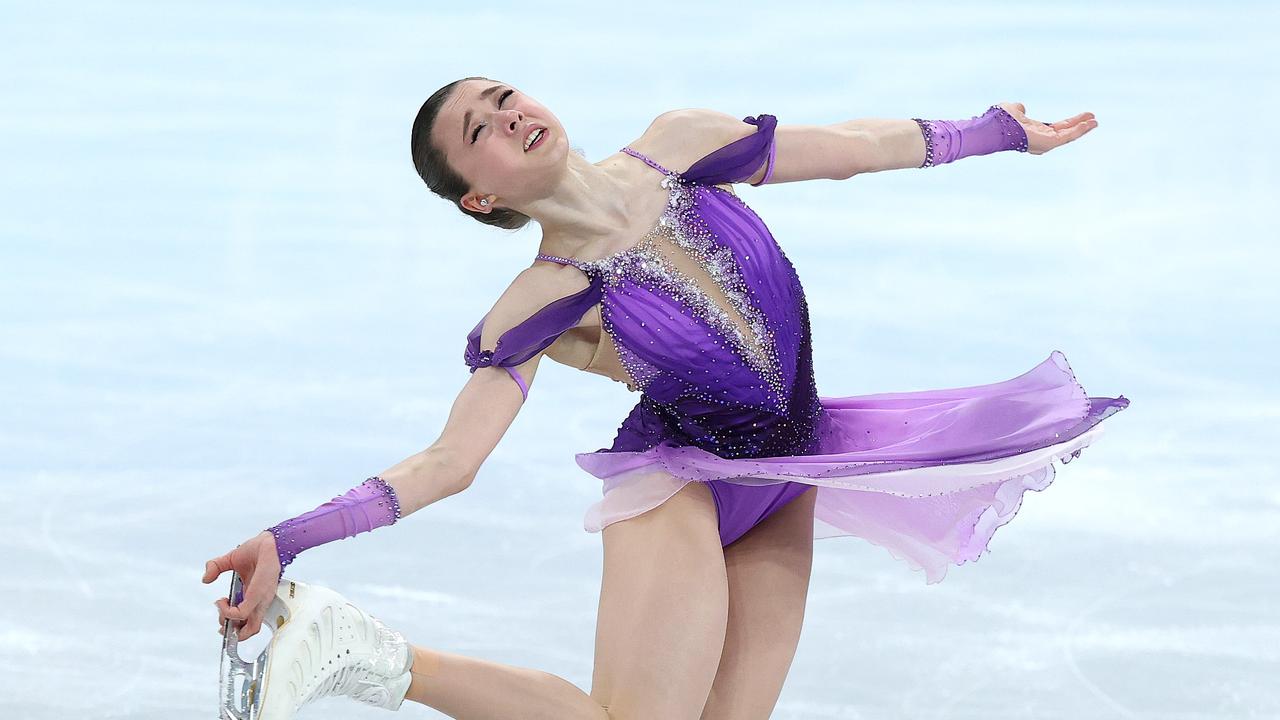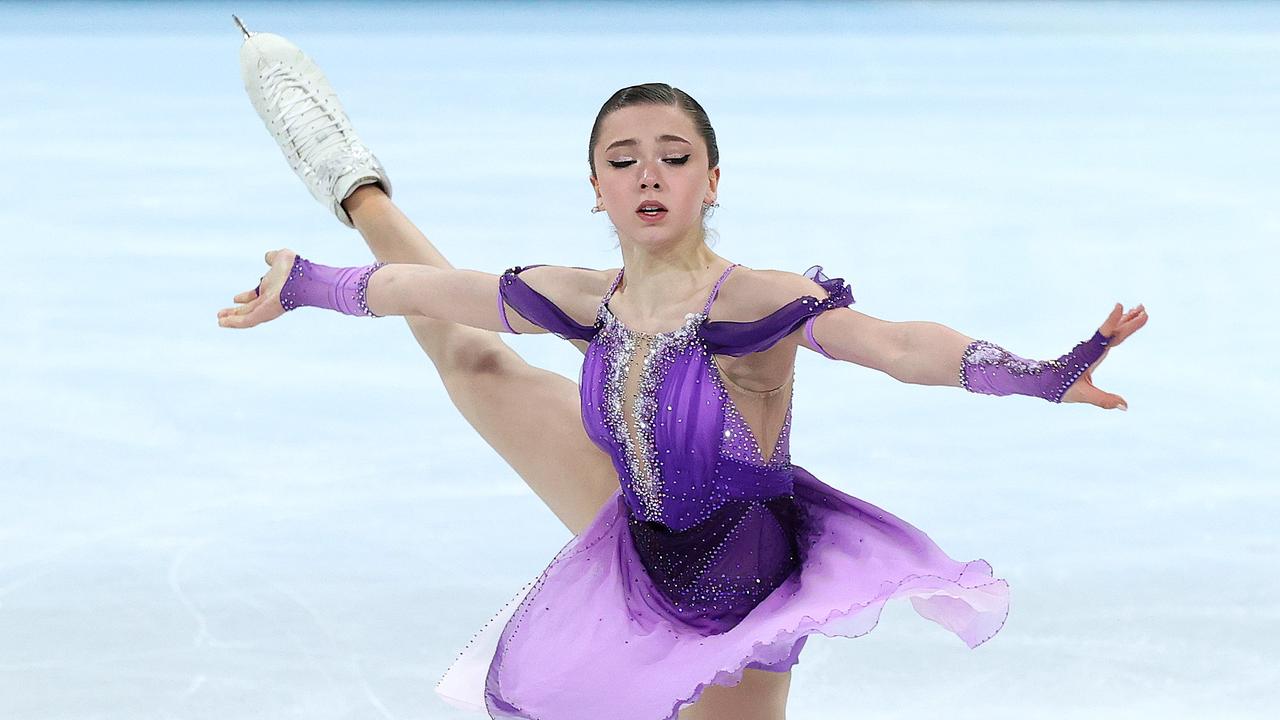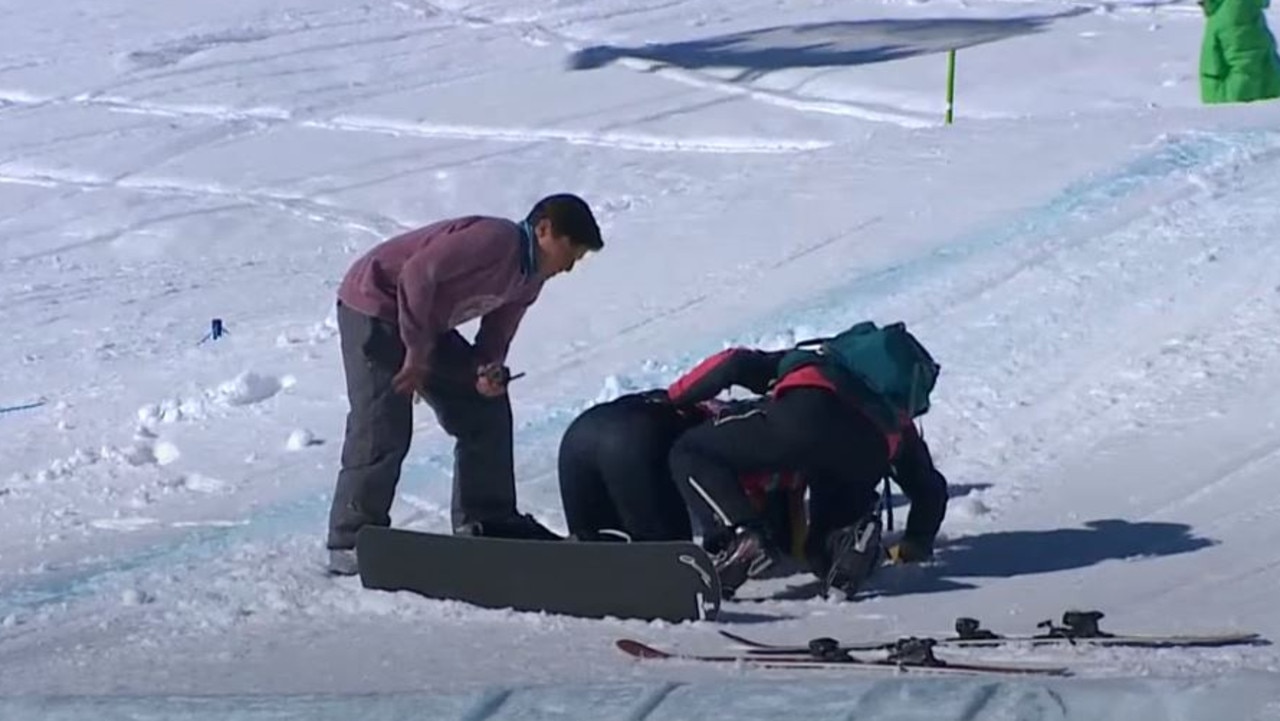‘Not a level playing field’: Kamila Valieva skates again amid doping scandal
Teenage figure skater Kamila Valieva put herself in pole position to win a second Beijing Olympic title, despite failing a drugs test.

Russian teenage figure skater Kamila Valieva put herself in pole position to win a second Beijing Olympic title as she controversially returned to action on Tuesday despite failing a drugs test.
Having been cheered onto the ice wearing an off-shoulder purple dress, the 15-year-old burst into tears at the end of a composed performance which propelled her to the top of the standings of the short program in the women’s singles competition.
Despite placing first, Valieva’s score was eight marks below her score when she performed the same routine at the Olympic team event last week.
The title individual will be decided on Thursday after the free skate.
Valieva learned during these Games she had tested positive in December for trimetazidine, a drug used to treat angina which also boosts endurance.
On Monday, the Court of Arbitration for Sport (CAS) ruled that she could carry on at the Olympics, but it does not mean she has been cleared of doping and she could still face punishment at a later date.
NBC’s figure skating broadcast team, comprised of former American Olympic skaters Johnny Weir and Tara Lipinski, seemingly protested Valieva’s participation. The broadcast was near-silent while Valieva was on the ice, only offering a couple of comments on her performance.
“All I feel I can say is that was the short program of Kamila Valieva at the Olympics,” Weir said bluntly as Valieva bowed to the audience.
“She had a positive test. We should not have seen this skate,” Lipinski added.

After her performance Valieva, holding a teddy bear and sobbing, did not stop to talk to reporters and took no part in the press conference.
A spokesman for the Russian Olympic Committee said she was not feeling well.
“We decided to send her to the Olympic Village as quickly as possible,” Konstantin Vybornov said.
Speaking to Russian television on the eve of the competition, Valieva said: “These last few days have been very difficult for me.
“I am happy but at the same time tired emotionally.”
The CAS ruling was celebrated in Russia but provoked fury elsewhere, with the United States Anti-Doping Agency accusing the country of “hijacking” the Beijing Olympics.
It also put the spotlight once more on doping by Russian athletes, who are not allowed to take part at these Games under their flag because of a state-sponsored doping program that reached its peak at its home 2014 Sochi Olympics.

The International Olympic Committee says there will be no medal ceremony in Beijing if Valieva comes in the top three of the singles event – unprecedented in the history of the Games.
Valieva led Russia to team gold last week, before a Stockholm laboratory reported that she had failed a drugs test from December 25.
The medal ceremony for the team event will also not take place.
In ruling that Valieva should not be suspended, CAS said that there were “exceptional circumstances”, including her age and the fact it had taken six weeks for her failed test to be reported.
Senior IOC member Denis Oswald told reporters in Beijing that Valieva had told her doping hearing she tested positive because of “contamination” from her grandfather’s medicine.
Russian media said Valieva allegedly drank from the same glass that her grandfather, who takes medication for a heart condition, had used.
British skater Natasha McKay hit out at the decision to let Valieva return to action.
“Obviously it is not a level playing field and at every sport it should be a level playing field, and we don’t get that opportunity here,” she said.
– with the New York Post and AFP
.



